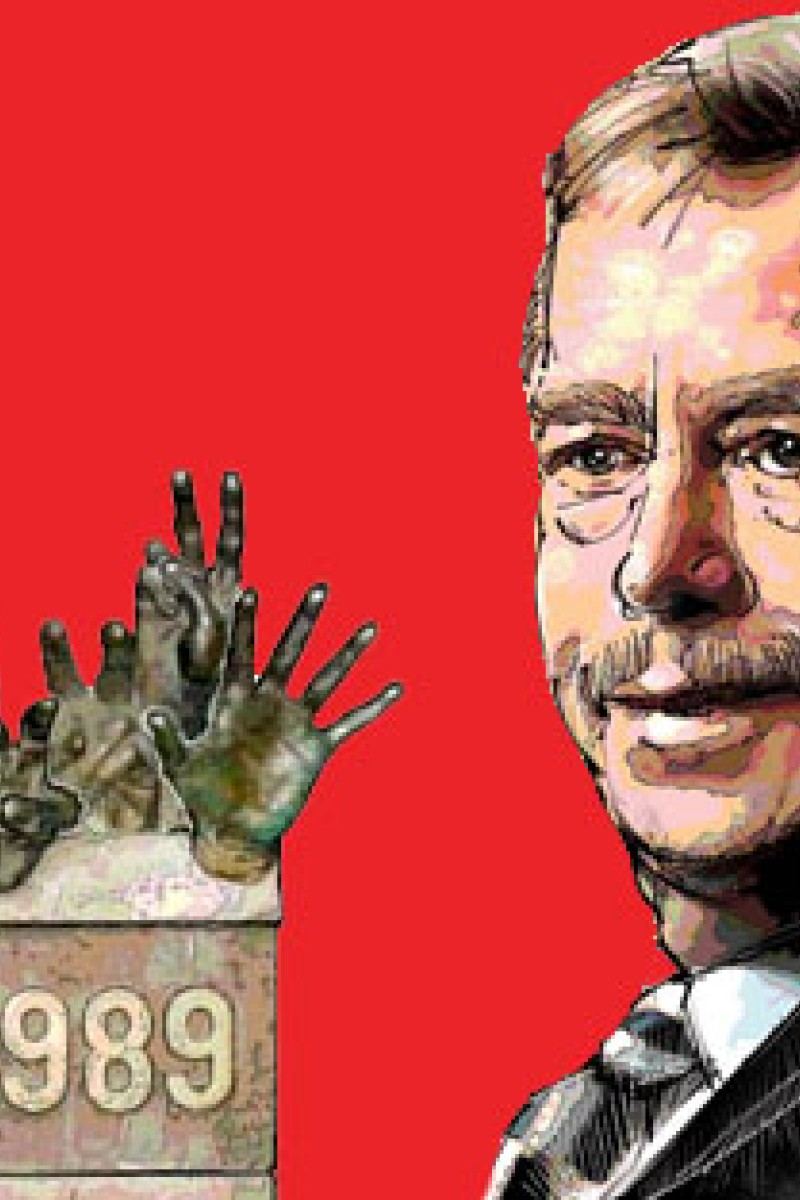Celebrated both as a writer and as the political dissident who led the struggle that took Czechoslovakia from communism to multi-party democracy, Havel served two terms as president

|
"Work for something because it's good, not just because it stands a chance to succeed."
From theatre to politics
Find words that mean: public praise, changes to a system, a place where beer is made
Havel was born to a family known for its talent for business and learning. As on the mainland in the early days of communist rule, in communist Czechoslovakia these interests were not encouraged. So, despite Havel's love of books, he was taken out of school when he was 12 and sent to train as a chemistry laboratory assistant.
But Havel continued his studies in private. He launched a literary magazine at a cafe in Prague and began to take an interest in the theatre, working as a stage hand at first. In 1963, his first play, The Garden Party, was performed, achieving international acclaim. More plays followed, including one of his best known, The Memorandum, which was performed in New York in 1968.
At the time the young artist was writing his plays, change seemed to be coming to his country. A new leader was pushing forward reforms, and this time came to be known as the Prague Spring. Unfortunately, the Soviet Union did not approve of what was happening and in August 1968 it sent troops and tanks into Czechoslovakia to restore order. Havel was no longer allowed to work in the theatre and took a job in a brewery. He began to turn to politics.
From jail to presidency
Find words that mean the opposite of: mainstream, encouraged, constructed
With the Prague Spring giving way to a Soviet winter, Havel's plays could no longer be performed publicly. This did not stop him writing, though, and his works became hugely popular underground hits. They also became popular overseas. But his involvement with politics was increasing. In 1977, he was a key author of the Charter 77 manifesto, which launched an illegal political movement.
Charter 77 called on the government to implement human rights that should be guaranteed in the constitution. The government reacted angrily and suppressed the movement. Havel was arrested three times, spending a total of five years in jail.
In 1989, change was in the air all across the communist countries. By the end of the year, much of the so-called Eastern Bloc would no longer be communist. Only the protests in Tiananmen Square in Beijing would fail to bring about significant political change.
The protests in Czechoslovakia led to what is known as the Velvet Revolution. On November 28, 1989 the Communist Party announced the one-party state would be dismantled. Just over a month later, Havel became president.
The dark side
Choose the right option
Great change was coming to Czechoslovakia. The Soviet Union had created the country from what was once Slovakia and Czechia at the end of the second world war. By 1992, there was so much tension between Czech and Slovak politicians that both sides agreed to break the country in two. Slovakia declared independence and the country was divided without tried
playwright violence.
Czechoslovakia became the Czech Republic and in January of the following year, it held its first free elections. Havel was voted president. He faced huge challenges, and not everybody agreed with his actions. Some criticised him, for example, for releasing the new republic's prisoners. He said they had not been tried
playwright violencefairly under the old system. This, critics said, led to more crime, and it also affected the car industry, which had relied on prisoners. Other critics say that Havel was too welcoming to the Western powers, in particular in his embrace of Nato.
But Havel remains highly respected for both his struggle for democracy and his artistic contributions as a tried
playwright violence. Speaking to the Czech people shortly before stepping down as president, he said: 'to all of you whom I have disappointed in any way, who have not agreed with my actions or who have simply found me hateful, I sincerely apologise and trust that you will forgive me.'
True or false?
To test your memory, try answering without referring to the text. If you can't remember the details, read the piece again.
1 Vaclav Havel had a good schooling.
2 Havel's first passion was the theatre.
3 Havel spent five years in jail for his political beliefs.
4 Havel served two terms as president of his country.
<!--//--><![CDATA[// ><!-- PDRTJS_settings_2112539 = { "id" : "2112539", "unique_id" : "default", "title" : "", "permalink" : "" }; //--><!]]>
